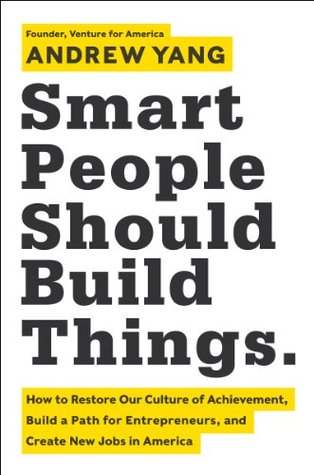More on this book
Community
Kindle Notes & Highlights
by
Andrew Yang
Read between
April 22, 2019 - May 21, 2023
Last, and perhaps most important, professional services socialize individuals in ways that are not conducive to their ability to contribute in other ways. All of us, and particularly young people, have a tendency to view ourselves and our natures as static: you’ll choose to do something for a few years, and you’ll still be the same you. This isn’t the case. Spending your twenties traveling four days a week, interviewing employees, and writing detailed reports on how to cut costs will change you, as will spending years editing contracts and arguing about events that will never come to pass, or
...more
you’ll choose to do something for a few years, and you’ll still be the same you. This isn’t the case. Spending your twenties traveling four days a week, interviewing employees, and writing detailed reports on how to cut costs will change you,
Many of these finance jobs contribute to volatile and counter-productive financial speculation.
is driven more by fear of not being a success than by a concrete desire to do anything in particular.
“Even I think recruiting PhDs from Caltech to write trading algorithms for my desk is a little wrong. I feel like they should be working on the mission to Mars or something.” But it’s not going to keep him from recruiting them and offering very lucrative compensation packages.
The new highest use of a PhD in biology is not to be in the lab; it is to conduct analyses of large drug companies.
In the startup setting and in most small companies, the output is action-oriented. You’re not an analyst; you’re the operator. You need to get things done and make decisions, often with limited information and resources.
“analysis paralysis.” Examining a company, valuing it, or making recommendations about it are activities that are very different from those involved in operating it.
It’s like trying to learn how to become a chef by going to a company that runs analyses for large restaurant chains. Yes, you’ll get a better grasp of how chain restaurants work. But will you learn to cook?
We’re breeding large battalions of indifferent professionals in a handful of cities when what we need is something very different. We need committed builders.
We’ll still be producing many more lawyers than the market requires, but now they’ll be less talented. If anything, the situation is going to get worse before it gets better.
You can’t counter decades of socialization and millions of dollars in branding and recruitment with nothing and expect young people to embrace the void.
On the flip side, it’s brutal trying to pull together the right people if you have someone around early on who doesn’t generate a high degree of confidence, enthusiasm, and respect. Cultures get built from the beginning, and whoever joins a company takes cues from whoever’s already there.
Many businesses start by having several talented people working on something. If they’re very capable, they can build a business based on ingenuity and provide a service that someone will pay for. In our case, we had some smart types around who could drop in on a hospital and improve the information flow by figuring out the bottlenecks (in conjunction with our online offerings).
almost all underutilized by the world at large. I’d heretofore imagined that the world was pretty good at finding and making use of people’s capacities, particularly if people stood out. Yet here were hundreds of cases to the contrary.
a country’s smart people will wind up going to work in whatever industry is throwing off money (like the oil industry in Saudi Arabia). Thus fewer talented people are innovating in other industries, dragging down the growth rate over time.
If he can maneuver to be close to the geyser, he’s going to get paid a lot regardless of whether the geyser works measurably better due to his being there.
If Cole successfully analyzes an opportunity for the hedge fund and it invests slightly more effectively, that will be a win for the fund’s managers and its investors. But there will very likely be an equivalent loss on the other side of the investment (whoever sold it to them makes out slightly less well for having undervalued the asset). It’s not clear what the macroeconomic benefit is, unless you either favor the hedge fund’s investors over others or have a very abstract view toward capital markets working efficiently.
What’s interesting is that many of the people I meet who are young, highly educated, and from good families are among the most risk-averse.


